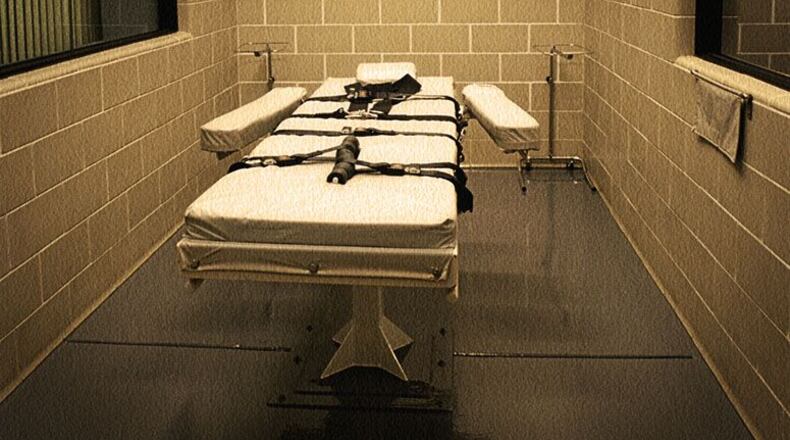Ohio’s only legal means of carrying out an execution is by lethal injection, but drug makers have threatened to withhold their medications for other purposes if they’re used for executions in Ohio.
“Here’s our dilemma that we have in Ohio right now; we have a law on the books that quite frankly we can’t enforce,” Householder said. The state lacks the lethal-injection drugs and there is little appetite to switching to hangings or firing squads, he said.
“So, I look at it from purely from a fiscal conservative standpoint and say maybe it’s time that we take a look at putting people away for life in prison with no parole,” Householder said Tuesday at a forum sponsored by the Associated Press.
House Minority Leader Emilia Sykes, D-Akron, raised concerns about inequities in how capital punishment is applied in different communities and geographic areas of the state.
Senate President Larry Obhof, R-Medina, though, said he believes capital punishment should remain as a tool for prosecutors to deal with the most heinous crimes. He added that he thinks abolishing the death penalty in Ohio in the next 12 months is unlikely.
Ohio Gov. Mike DeWine issued three more reprieves on death-penalty cases late last week.
At the AP forum on Tuesday, DeWine sidestepped a question about how his personal opinion of capital punishment has changed. He noted that Ohio is at a standstill now and his heart goes out to families of murder victims who are enduring the postponements of executions.
About the Author

